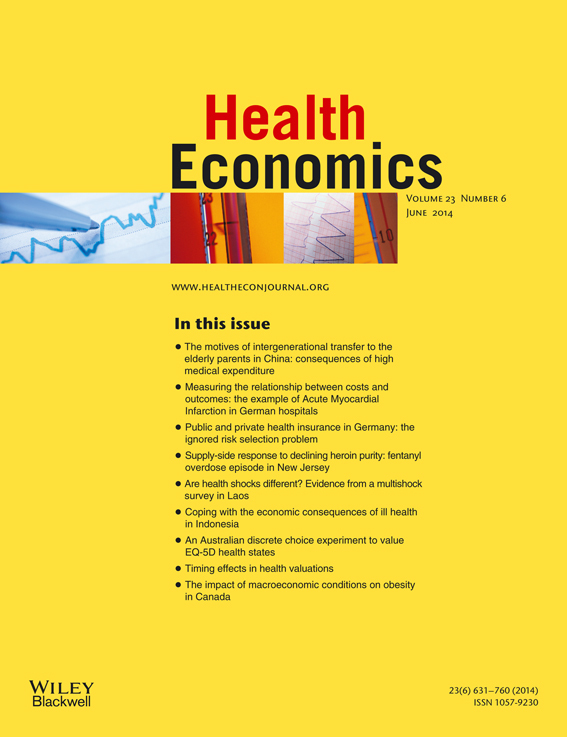PUBLIC AND PRIVATE HEALTH INSURANCE IN GERMANY: THE IGNORED RISK SELECTION PROBLEM
ABSTRACT
We investigate risk selection between public and private health insurance in Germany. With risk-rated premiums in the private system and community-rated premiums in the public system, advantageous selection in favor of private insurers is expected. Using 2000 to 2007 data from the German Socio-Economic Panel Study (SOEP), we find such selection. While private insurers are unable to select the healthy upon enrollment, they profit from an increase in the probability to switch from private to public health insurance of those individuals who have experienced a negative health shock. To avoid distorted competition between the two branches of health care financing, risk-adjusted transfers from private to public insurers should be instituted. Copyright © 2013 John Wiley & Sons, Ltd.




